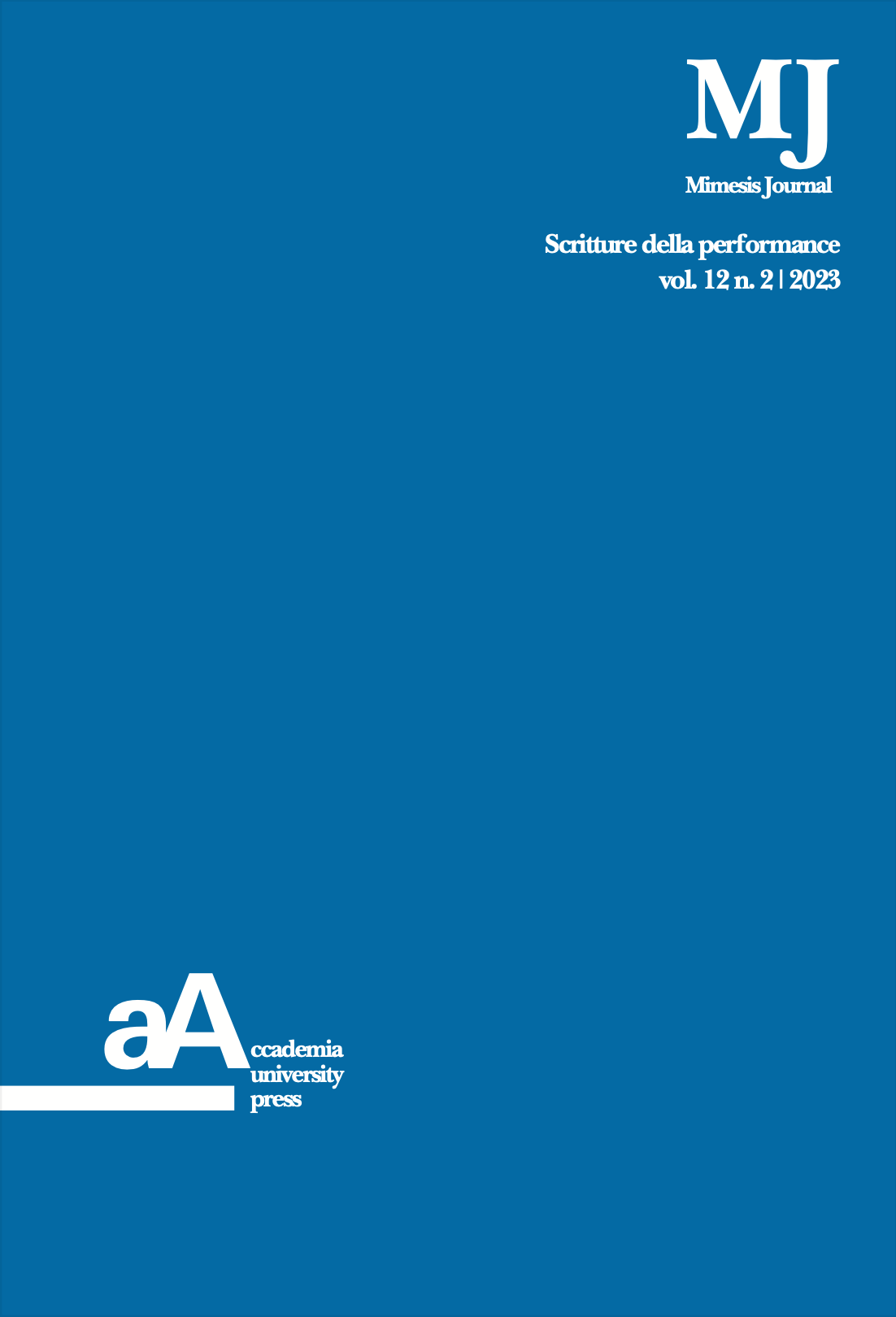I cigni non muoiono mai
Variazioni sulla "Morte del cigno" nel terzo millennio
DOI:
https://doi.org/10.4000/mimesis.2800Parole chiave:
Lavanderia a Vapore, re-enactment, contemporary dance, Swans Never Dies, The Dying SwansAbstract
Che cosa resta oggi di un’opera coreografica del passato, considerata pietra miliare nel canone della danza occidentale del XX secolo? In quali forme e in quali forme corpi è sopravvissuta nel tempo? Chi ne raccoglie l’eredità e perché? Come risuona fra i coreografi attuali e quali valori può trasmettere in futuro? Queste sono soltanto alcune delle domande da cui parte Swans Never Die. Un progetto ideato da una rete di partner nazionali: Lavanderia a Vapore, Operaestate Festival Veneto e CSC Centro per la Scena Contemporanea Bassano del Grappa, Triennale Milano Teatro, Fondazione Teatro Grande di Brescia, Festival Bolzano Danza – Fondazione Haydn, Il Cassero LGBTI Center – Gender Bender Festival, Mnemedance e DAMS/Università di Torino. Durante la stagione 2021/‘22, SND ha invitato il pubblico a ripensare, o meglio a ri-presentificare (mediante laboratori e performance), La morte del cigno, assolo creato da Michel Fokine per Anna Pavlova nel 1905: un’opportunità per esplorare stili, tecniche compositive, identità culturali e antropologiche. Inserendosi nel filone dedicato al reenactment del repertorio in età contemporanea, il contributo – partendo da un inquadramento storico e teorico (non dimentico di alcune emblematiche variazioni sul tema del cigno, come l’Invisible Piece di Cristina Kristal Rizzo) – si propone di offrire un’analisi fenomenica di alcuni momenti salienti del progetto, attraverso dichiarazioni, restituzioni critiche, documenti e materiali di lavoro.


